
Partners
Supported by
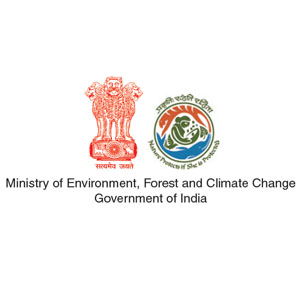
Exhibition - Greenovation 2016 Patron
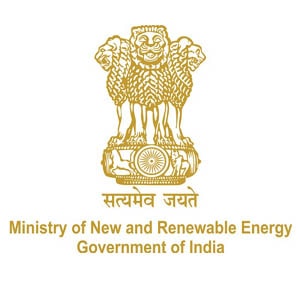
Star Partner
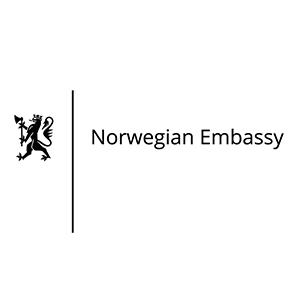
Senior Partners



Associate Partners
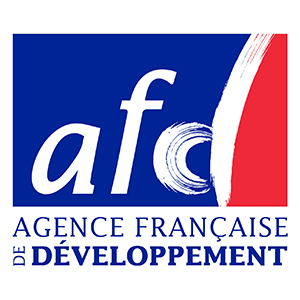

Co- Associate Partners
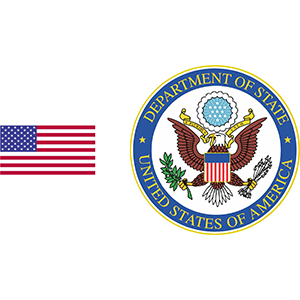
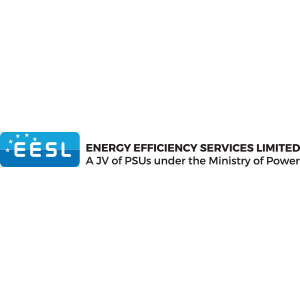

Thematic Track Partners


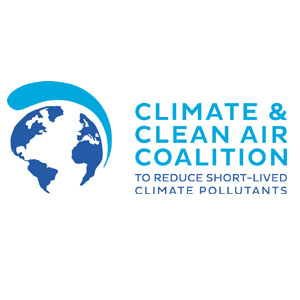
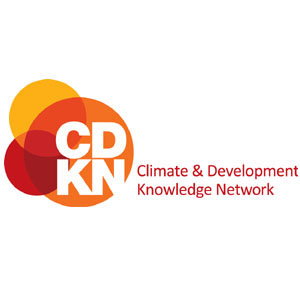
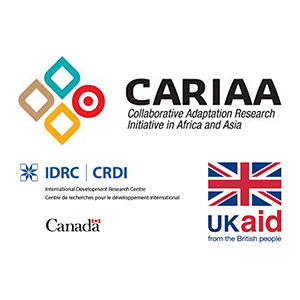



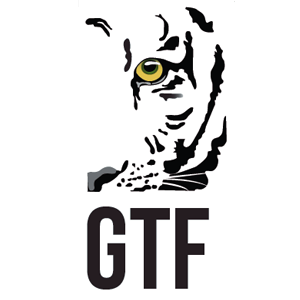
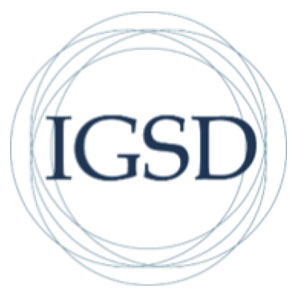

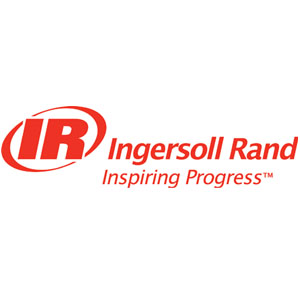
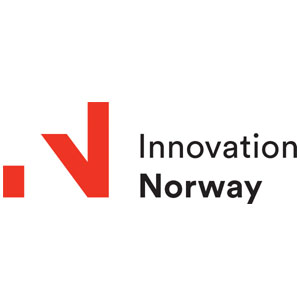

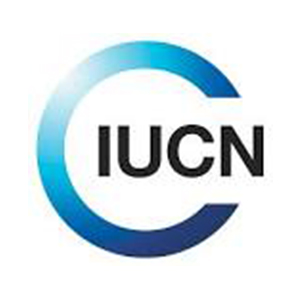

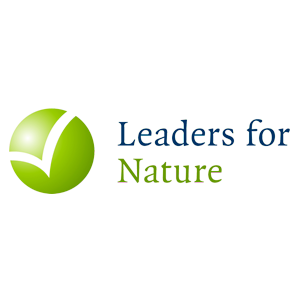


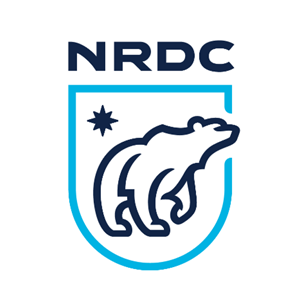
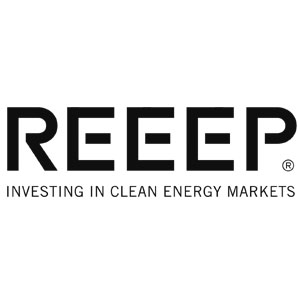

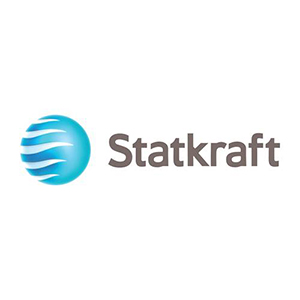
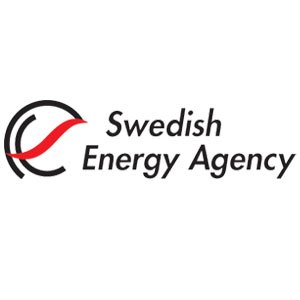





Outreach Partners

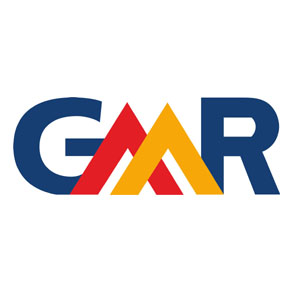


Ministry of New and Renewable Energy
The Ministry of New and Renewable Energy (MNRE) is the nodal Ministry of the Government of India for all matters relating to new and renewable energy. The broad aim of the Ministry is to develop and deploy new and renewable energy for supplementing the energy requirements of the country. The role of new and renewable energy has been assuming increasing significance in recent times with the growing concern for the country's energy security. Energy self-sufficiency was identified as the major driver for new and renewable energy in the country in the wake of the two oil shocks of the 1970s. The sudden increase in the price of oil, uncertainties associated with its supply and the adverse impact on the balance of payments position led to the establishment of the Commission for Additional Sources of Energy in the Department of Science & Technology in March 1981. The Commission was charged with the responsibility of formulating policies and their implementation, programmes for development of new and renewable energy apart from coordinating and intensifying R&D in the sector. In 1982, a new department, i.e., Department of Non-conventional Energy Sources (DNES), that incorporated CASE, was created in the then Ministry of Energy. In 1992, DNES became the Ministry of Non-conventional Energy Sources. In October 2006, the Ministry was re-christened as the Ministry of New and Renewable Energy.

Royal Norwegian Embassy
The Royal Norwegian Embassy is proud to be the Star Partner for WSDS 2016. This summit is an important meeting area for the international community to address global environmental and development challenges and is of great value to governments, civil society, business and academia. India is an important partner to Norway, where increased trade, investments and economic cooperation with mutual benefits are the topmost priority for our two countries. Our partnership is founded on mutual interests and respect. We collaborate in diverse areas such as environment, energy, climate change, sustainable development, health, trade and investments, good governance, gender, culture, higher education, science and technology. Norway is committed to further strengthen, deepen and develop the Norway-India bilateral partnership.

Asian Development Bank
ADB, based in Manila, is dedicated to reducing poverty in Asia and the Pacific through inclusive economic growth, environmentally sustainable growth, and regional integration. Established in 1966, ADB in December 2016 will mark 50 years of development partnership in the region. It is owned by 67 members - 48 from the region. In 2015, ADB assistance totalled $27.2 billion, including co-financing of $10.7 billion.
The European Union
The European Union is a unique economic and political union between 28 European countries that together cover much of the continent. The EU started out as an economic cooperation, leading to the creation of a single market for good, services and people. The Union is now evolved into an organization spanning policy areas, from climate, environment and health to external relations and security, justice and migration. The EU is based on the rule of law: everything it does is founded on treaties, voluntarily and democratically agreed by its member countries. The EU is governed by the principle of representative democracy, with citizens directly represented at Union level. The EU has some of the world's highest environmental standards. Environment policy helps green the EU economy, protect nature, and safeguard the health and quality of life of people living in the EU. EU energy policy aims to ensure security of supply, competitiveness and sustainability. A European Energy Union aims to ensure secure, affordable and climate-friendly energy for EU citizens and businesses: Energy will flow freely across national borders in the EU. New technologies, energy efficiency measures and renewed infrastructure will help cut household bills, create new jobs and boost growth. Europe will become a sustainable, low-carbon and environmentally-friendly economy leading the way in renewable energy and the fight against global warming, through ambitious energy and climate targets: By 2020: Reducing greenhouse gases by at least 20% (Compared to 1990 levels); 20% of energy from renewable sources; 20% energy efficiency improvement. By 2030: 40% reduction in greenhouse gas emissions; At least 27% EU energy from renewables; Increase energy efficiency by 27-30%; 15% electricity interconnection. By 2050: 80-95% cut in greenhouse gases.
The World Bank
The World Bank Group is an international development institution, comprising 189 member countries. The Bank galvanizes international and national efforts, towards achieving its mission to end extreme poverty within a generation and to promote shared prosperity. It does so by providing governments with an integrated package of financing, advisory services, and knowledge, tailored to the development needs of each country. The International Bank for Reconstruction and Development (IBRD), International Development Association (IDA) and the International Finance Corporation (IFC) are among the Group's principal branches. IBRD provides financing for middle-income countries to build core infrastructure with loans that carry minimum market interest rates; IDA provides interest-free loans to low-income countries for a broad range of sectors including health, education, rural roads, water and electricity supply; IFC is the private sector arm of the Group and works closely with businesses by providing them investment, advice and asset management. India was one of the institution's founding members and took its first loan in 1949 for the Indian Railways. Over the years, the Bank has financed a number of large projects - to build infrastructure, generate power, produce iron and steel, upgrade the ports, and support the Green and White Revolutions. Projects have also supported inclusive growth by helping expand access to education, tackle disease, raise agricultural productivity, improve rural connectivity, and bring much-needed water supply to village households. Today, as India strives to maintain high growth and meet the aspirations of a billion people, the World Bank is helping the country implement some of its transformational development programs such as the Sarva Shikhsha Abhiyan, the Eastern Dedicated Freight Corridor, the Ganga rejuvenation Project and Swachh Bharat Abhiyan. The Group is also focusing on the six priority themes outlined by Prime Minister Modi for Bank support. These are: building skills, creating 100 smart cities, refurbishing 500 others, rejuvenating the iconic Ganga, ramping up rural sanitation, and bringing 24/7 power supply to all of India's people. India is the largest client of the World Bank Group. Between 2015 and 2016, the Group lent around $4.8 billion to India. This includes $2.8 billion from the International Bank for Reconstruction and Development (IBRD), $1 billion from the International Development Association (IDA) and approximately $1.0 billion from the International Finance Corporation (IFC). As of June 2016, total IBRD and IDA net commitments stood at $27 billion (IBRD $16 billion, IDA $11 billion) across 95 projects. As of end May 2016, IFC's India portfolio amounted to committed and disbursed exposure of approximately $4.4 billion, across 248 projects.
Agence Francaise de Developpement
Agence Francaise de Developpement (AFD), a public financial institution that implements the policy defined by the French Government, works to combat poverty and promote sustainable development. AFD operates on four continents via a network of 75 offices and finances and supports projects that improve living conditions for populations, boost economic growth and protect the planet. In 2015, AFD earmarked EUR 8.3bn to finance projects in developing countries and for overseas France.
BMW India
BMW Group in India
Headquartered in Gurgaon (National Capital Region), BMW India is a 100% subsidiary of the BMW Group. The BMW Plant Chennai started operations in March 2007 and locally produces the BMW 1 Series, the BMW 3 Series, the BMW 3 Series Gran Turismo, the BMW 5 Series, the BMW 7 Series, the BMW X1, the BMW X3 and the BMW X5.
The wide range of BMW activities in India include a BMW Financial Services Company operating with three business lines: Retail Finance, Commercial Finance and Insurance Solutions, International purchashing office, Parts Warehouse in Mumbai, Training centre in Gurgaon and development of a dealer organization across major metropolitan centers of the country.
The success of the BMW Group has always been based on long-term thinking and responsible action. The company has therefore established ecological and social sustainability throughout the value chain, comprehensive product responsibility and a clear commitment to conserving resources as an integral part of its strategy. The BMW Group has been named the world's most sustainable automotive company in 2016 Dow Jones Sustainability Indexes (DJSI).
Taking a step forward in sustainable mobility, the BMW Group has launched the BMW i8 - Plug in hybrid sports car in India in 2015. BMW i stands for visionary electric cars and mobility services, inspiring design and a new understanding of premium that is strongly defined by sustainability.
The BMW Group
With its three brands BMW, MINI and Rolls-Royce, the BMW Group is the world's leading premium manufacturer of automobiles and motorcycles and also provides premium financial and mobility services. As a global company, the BMW Group operates 31 production and assembly facilities in 14 countries and has a global sales network in more than 140 countries.

American Embassy
The North India Office (NIO) of the American Embassy, located at the American Center in New Delhi, manages a broad range of activities promoting strong relations between the people of India and the United States. These activities include professional exchanges, an extensive policy-based speaker program, education outreach, and a wide-range of events to promote U.S.-India strategic interests throughout North India.
EESL
EESL is a joint venture company of four power sectors enterprises i.e. NTPC Ltd, Power Grid Corporation of India (PGCIL), Power Finance Corporation Ltd. (PFC) and Rural Electrification Corporation (REC) with an aim to function as an Energy Service Company (ESCO). The organisation facilitates the implementation of energy efficiency projects for Demand Side Management (DSM) to reduce the energy consumption in various sectors in India. To keep up with India's pace of development, meeting the increasing demand of energy becomes central. When saving one unit of electricity comes way cheaper than producing it in the first place, EESL has recognised a business potential in the untapped energy efficiency market in India. EESL has been the first such exclusive company for implementation of energy efficiency projects in South Asia.
Post a significant governmental push towards concept of energy efficiency, EESL is running successful energy efficiency schemes like UJALA (Unnat Jyoti by Affordable LEDs for All), Street Light National Programme (SLNP), energy efficient fan distribution programme, efficient buildings programme along with AgDSM, the agricultural pump distribution scheme. Various other schemes based on pan-India distribution of energy efficient commodities are in pipeline. All these initiatives cater to their specific domain to reduce the count of megawatts consumed in the country. This way we are able to meet the growing demand by way of saving electrical units through effective appliance efficiency.
Interestingly, EESL's UJALA programme (under Government of India) has been noted as world's largest LED programme. A simple act of change of one light bulb to LED at South Block Prime Minister's office heralded a movement in the entire country for considering the same change. Today, UJALA has been bringing energy savings of more than 5.67 crore KWh a day. Over 15 crore LED bulbs have been distributed under UJALA scheme, which is savings more than Rs. 22.69 crore per day in electricity bills. The UJALA impact is helping environment by reducing over 45,900 tonnes of CO2 emissions.
EESL seeks to unlock energy efficiency market in India, which is estimated to be at US$ 12 billion. This can potentially result in energy savings of up to 20 per cent of the current consumption. This is being done by way of continually transforming the innovative business and implementation models. EESL also acts as the resource centre for capacity building of State DISCOMs, ERCs, SDAs, upcoming ESCOs, financial institutions, etc. The uniqueness of EESL's programmes are paving the roadmap for making energy efficiency more accessible and affordable in India.

Embassy of Sweden
The Embassy of Sweden in New Delhi represents the Government of Sweden in India and is responsible to develop, promote and maintain bilateral relations between Sweden and India. The Embassy provides information about Sweden and undertakes a wide range of activities in public and private sectors with an aim to promote political, economic, trade and investment and cultural ties between Sweden and India. The Embassy also supports Swedish citizens in consular matters and issues visas and permits for Indian and third country national citizens. The Embassy of Sweden in New Delhi is responsible for the Swedish Honorary Consulates in Kolkata and Chennai. The Swedish Consulate General in Mumbai covers Maharashtra, Gujarat and Goa. The Ambassador in New Delhi is also accredited to Sri Lanka, Nepal, Bhutan and Maldives. The Embassy and the Mumbai Consulate General work closely with Business Sweden - The Swedish Trade & Invest Council and the Swedish Chamber of Commerce in India to form Team Sweden. Bilateral relations between India and Sweden are founded on shared democratic values that date back since India's independence. The first Prime Minister of India, Jawaharlal Nehru visited Sweden in 1957, paving way for a close cooperation between the two welfare-oriented democracies. In subsequent years, continuous visits by various ministers, business and industry delegations to each other's country has resulted in enhanced bilateral relationship and created more avenues of diplomatic cooperation and investment in trade, industry, academia and culture. Sweden and India has signed a number of Memorandum of Understanding in areas of mutual interest such as environment, renewable energy, urban development, science and technology, health, and SME sectors. More than 160 Swedish companies are established in India that provides employment, directly and indirectly, to almost 750,000 people in India. Many of them also invest in research and development. There is intent to increase investments in the coming years especially in IT/Telecom, Engineering Products, Automotive/Heavy Vehicles, and Retail/Sourcing of consumer goods. Also, upcoming and growing sectors are Life Science/Healthcare, Environmental Technology/ Sustainability, Waste Management and Energy. Swedish companies are present in almost all business sectors and in many states of India but the major hubs are Delhi, Mumbai, Bengaluru and Pune, and there are plans to expand in other states. The companies have made their footprint known in India and with innovative, sustainable and long-term perspectives, there is no doubt they will continue to do business in the country and are here to stay. On May 31, 2015 Sweden had the great honor of welcoming President Pranab Mukherjee, on the first ever state visit by an Indian President to Sweden. This historic visit represented a unique opportunity in the excellent and long-standing relationship between India and Sweden. The relationship got added impetus when the Prime Ministers of Sweden and India, Stefan Lofven and Narendra Modi, met in Mumbai at the Make in India February 2016 event and signed a Joint Statement that laid a roadmap for a strengthened Sweden-India cooperation in the years to come.
Agence Francaise de Developpement
Agence Francaise de Developpement (AFD), a public financial institution that implements the policy defined by the French Government, works to combat poverty and promote sustainable development. AFD operates on four continents via a network of 75 offices and finances and supports projects that improve living conditions for populations, boost economic growth and protect the planet. In 2015, AFD earmarked EUR 8.3bn to finance projects in developing countries and for overseas France.
BMW India
BMW Group in India
Headquartered in Gurgaon (National Capital Region), BMW India is a 100% subsidiary of the BMW Group. The BMW Plant Chennai started operations in March 2007 and locally produces the BMW 1 Series, the BMW 3 Series, the BMW 3 Series Gran Turismo, the BMW 5 Series, the BMW 7 Series, the BMW X1, the BMW X3 and the BMW X5.
The wide range of BMW activities in India include a BMW Financial Services Company operating with three business lines: Retail Finance, Commercial Finance and Insurance Solutions, International purchashing office, Parts Warehouse in Mumbai, Training centre in Gurgaon and development of a dealer organization across major metropolitan centers of the country.
The success of the BMW Group has always been based on long-term thinking and responsible action. The company has therefore established ecological and social sustainability throughout the value chain, comprehensive product responsibility and a clear commitment to conserving resources as an integral part of its strategy. The BMW Group has been named the world's most sustainable automotive company in 2016 Dow Jones Sustainability Indexes (DJSI).
Taking a step forward in sustainable mobility, the BMW Group has launched the BMW i8 - Plug in hybrid sports car in India in 2015. BMW i stands for visionary electric cars and mobility services, inspiring design and a new understanding of premium that is strongly defined by sustainability.
The BMW Group
With its three brands BMW, MINI and Rolls-Royce, the BMW Group is the world's leading premium manufacturer of automobiles and motorcycles and also provides premium financial and mobility services. As a global company, the BMW Group operates 31 production and assembly facilities in 14 countries and has a global sales network in more than 140 countries.

climate and clean air coalition

Climate and Development Knowledge Network
The Climate and Development Knowledge Network supports decision-makers in designing and delivering climate compatible development. We do this by combining research, advisory services and knowledge management in support of locally owned and managed policy processes. We work in partnership with decision-makers in the public, private and non-governmental sectors nationally, regionally and globally. We hold strongly to the ideals of human development and environmental sustainability. The Climate Development Knowledge Network is managed by an alliance of organisations led by PricewaterhouseCoopers LLP (PwC), and including Fundación Futuro Latinoamericano, the Overseas Development Institute, SouthSouthNorth and LEAD Pakistan which hosts the Asia Secretariat.
Collaborative Adaptation Research Initiative in Africa and Asia
The Collaborative Adaptation Research Initiative in Africa and Asia (CARIAA), a research program funded by Canada’s International Development Research Centre (IDRC) and United Kingdom’s Department for International Development (DfID), aims to build the resilience of vulnerable populations and their livelihoods, in three climate change hotspots of Semi-arid regions, deltas and glacier and snow-pack dependent river basins across Africa and Asia. As part of this, four different consortia have been identified to operationalize research in these geographical settings, which include Adaptation at Scale in Semi-Arid Regions (ASSAR), Deltas, Vulnerability and Climate Change: Migration and Adaptation (DECCMA), Pathways to Resilience in Semi-Arid Economies (PRISE) and Himalayan Adaptation, Water and Resilience (HI-AWARE). Through the course of the program the research aims to inform adaptation and resilience building strategies from local to international levels.

EESL
EESL is a joint venture company of four power sectors enterprises i.e. NTPC Ltd, Power Grid Corporation of India (PGCIL), Power Finance Corporation Ltd. (PFC) and Rural Electrification Corporation (REC) with an aim to function as an Energy Service Company (ESCO). The organisation facilitates the implementation of energy efficiency projects for Demand Side Management (DSM) to reduce the energy consumption in various sectors in India. To keep up with India's pace of development, meeting the increasing demand of energy becomes central. When saving one unit of electricity comes way cheaper than producing it in the first place, EESL has recognised a business potential in the untapped energy efficiency market in India. EESL has been the first such exclusive company for implementation of energy efficiency projects in South Asia.
Post a significant governmental push towards concept of energy efficiency, EESL is running successful energy efficiency schemes like UJALA (Unnat Jyoti by Affordable LEDs for All), Street Light National Programme (SLNP), energy efficient fan distribution programme, efficient buildings programme along with AgDSM, the agricultural pump distribution scheme. Various other schemes based on pan-India distribution of energy efficient commodities are in pipeline. All these initiatives cater to their specific domain to reduce the count of megawatts consumed in the country. This way we are able to meet the growing demand by way of saving electrical units through effective appliance efficiency.
Interestingly, EESL's UJALA programme (under Government of India) has been noted as world's largest LED programme. A simple act of change of one light bulb to LED at South Block Prime Minister's office heralded a movement in the entire country for considering the same change. Today, UJALA has been bringing energy savings of more than 5.67 crore KWh a day. Over 15 crore LED bulbs have been distributed under UJALA scheme, which is savings more than Rs. 22.69 crore per day in electricity bills. The UJALA impact is helping environment by reducing over 45,900 tonnes of CO2 emissions.
EESL seeks to unlock energy efficiency market in India, which is estimated to be at US$ 12 billion. This can potentially result in energy savings of up to 20 per cent of the current consumption. This is being done by way of continually transforming the innovative business and implementation models. EESL also acts as the resource centre for capacity building of State DISCOMs, ERCs, SDAs, upcoming ESCOs, financial institutions, etc. The uniqueness of EESL's programmes are paving the roadmap for making energy efficiency more accessible and affordable in India.

Embassy of Sweden
The Embassy of Sweden in New Delhi represents the Government of Sweden in India and is responsible to develop, promote and maintain bilateral relations between Sweden and India. The Embassy provides information about Sweden and undertakes a wide range of activities in public and private sectors with an aim to promote political, economic, trade and investment and cultural ties between Sweden and India. The Embassy also supports Swedish citizens in consular matters and issues visas and permits for Indian and third country national citizens. The Embassy of Sweden in New Delhi is responsible for the Swedish Honorary Consulates in Kolkata and Chennai. The Swedish Consulate General in Mumbai covers Maharashtra, Gujarat and Goa. The Ambassador in New Delhi is also accredited to Sri Lanka, Nepal, Bhutan and Maldives. The Embassy and the Mumbai Consulate General work closely with Business Sweden - The Swedish Trade & Invest Council and the Swedish Chamber of Commerce in India to form Team Sweden. Bilateral relations between India and Sweden are founded on shared democratic values that date back since India's independence. The first Prime Minister of India, Jawaharlal Nehru visited Sweden in 1957, paving way for a close cooperation between the two welfare-oriented democracies. In subsequent years, continuous visits by various ministers, business and industry delegations to each other's country has resulted in enhanced bilateral relationship and created more avenues of diplomatic cooperation and investment in trade, industry, academia and culture. Sweden and India has signed a number of Memorandum of Understanding in areas of mutual interest such as environment, renewable energy, urban development, science and technology, health, and SME sectors. More than 160 Swedish companies are established in India that provides employment, directly and indirectly, to almost 750,000 people in India. Many of them also invest in research and development. There is intent to increase investments in the coming years especially in IT/Telecom, Engineering Products, Automotive/Heavy Vehicles, and Retail/Sourcing of consumer goods. Also, upcoming and growing sectors are Life Science/Healthcare, Environmental Technology/ Sustainability, Waste Management and Energy. Swedish companies are present in almost all business sectors and in many states of India but the major hubs are Delhi, Mumbai, Bengaluru and Pune, and there are plans to expand in other states. The companies have made their footprint known in India and with innovative, sustainable and long-term perspectives, there is no doubt they will continue to do business in the country and are here to stay. On May 31, 2015 Sweden had the great honor of welcoming President Pranab Mukherjee, on the first ever state visit by an Indian President to Sweden. This historic visit represented a unique opportunity in the excellent and long-standing relationship between India and Sweden. The relationship got added impetus when the Prime Ministers of Sweden and India, Stefan Lofven and Narendra Modi, met in Mumbai at the Make in India February 2016 event and signed a Joint Statement that laid a roadmap for a strengthened Sweden-India cooperation in the years to come.
Genpact

GTF

IGSD

India GHG Program
The World Resources Institute (WRI) India, the Confederation of Indian Industries (CII), and The Energy and Resources Institute (TERI) have launched a Centre for Excellence on GHG accounting in India. This is the India GHG Program, a voluntary initiative to assist Indian corporates in measurement and management of GHG emissions. The Program promotes a more competitive, profitable, and sustainable business environment; broadens engagement between to policymakers and the business sector in supporting the overall advancement of national goals; and will create a pool of adequately trained and certified GHG practitioners, plus measurement and management professionals.
The Program aims to help companies in India monitor their progress towards voluntary reduction goals in a consistent and credible manner. It will provide the companies with tools and technical assistance to build inventories, identify reduction opportunities, establish both annual and long-term reduction goals, and track their progress based on the GHG Protocol.

Ingersoll Rand

Innovation Norway

International Solar Alliance

IUCN

LEAD
LEAD, or Leadership for Environment and Development, is a think tank with a focus on policy-relevant research and is increasingly incorporating learning, knowledge management and public policy engagement activities in the design and implementation of projects. LEAD Pakistan works at policy level interventions meant to enrich the development vision of the government through evidence-based research and sensitization of the policy- and lawmakers on emerging local and global development needs.
Leaders for Nature

Mahindra

National Green Highways Mission

NRDC

REEEP
REEEP invests in clean energy markets in developing countries to reduce CO2 emissions and build prosperity. Leveraging a strategic portfolio of high impact investments, REEEP creates, adapts and shares knowledge to build sustainable markets for renewable energy and energy efficient solutions; advance energy access, improve lives and economic opportunities; and reduce climate and environmental damage. Market transformation is complex and multidimensional. We monitor, evaluate and learn from our portfolio to understand these complex systems, identify opportunities and barriers to success, and lower risk for market actors. This insight influences policy, encourages public and private investment, and informs our portfolio strategy to build scale within and replication across markets. REEEP is committed to the principles of the Climate Knowledge Brokers Group in ensuring our data and knowledge are open, accessible and suited to the needs of decision makers in creating change.
Royal Norwegian Embassy
The Royal Norwegian Embassy is proud to be the Star Partner for WSDS 2016. This summit is an important meeting area for the international community to address global environmental and development challenges and is of great value to governments, civil society, business and academia. India is an important partner to Norway, where increased trade, investments and economic cooperation with mutual benefits are the topmost priority for our two countries. Our partnership is founded on mutual interests and respect. We collaborate in diverse areas such as environment, energy, climate change, sustainable development, health, trade and investments, good governance, gender, culture, higher education, science and technology. Norway is committed to further strengthen, deepen and develop the Norway-India bilateral partnership.

Statkraft
Statkraft is a leading company in hydropower internationally and Europe's largest generator of renewable energy. The Group produces hydropower, wind power, gas-fired power and district heating and is a global player in energy market operations. Statkraft has 4200 employees in more than 20 countries. We also support clients with sustainability solutions through our activities in voluntary and compliance environmental markets globally. In India, our power sales & trading team can further support in power supply and solar rooftop solutions.
Swedish Energy Agency

TERI University
The origin of TERI University is rooted in comprehensive research, consultancy, and training on environmental sustainability and development carried out at The Energy and Resources Institute (TERI) in the three decades since 1974. The undergraduate and postgraduate academic programmes at the University address the challenges of providing adequate resources for an increasing global population given a limited and degraded natural resource base through innovation of policies and technologies focusing on sustainable development. Developing an understanding of sustainability amongst students is achieved through exposure to a plethora of tools and methodologies, and knowledge disseminated using an interdisciplinary approach that covers a variety of disciplines, such as ecology, natural and social sciences, governance, policy, law, and engineering. Details on the various academic programmes offered and the research being undertaken at TERI University can be accessed on its website.
The European Union
The European Union is a unique economic and political union between 28 European countries that together cover much of the continent. The EU started out as an economic cooperation, leading to the creation of a single market for good, services and people. The Union is now evolved into an organization spanning policy areas, from climate, environment and health to external relations and security, justice and migration. The EU is based on the rule of law: everything it does is founded on treaties, voluntarily and democratically agreed by its member countries. The EU is governed by the principle of representative democracy, with citizens directly represented at Union level. The EU has some of the world's highest environmental standards. Environment policy helps green the EU economy, protect nature, and safeguard the health and quality of life of people living in the EU. EU energy policy aims to ensure security of supply, competitiveness and sustainability. A European Energy Union aims to ensure secure, affordable and climate-friendly energy for EU citizens and businesses: Energy will flow freely across national borders in the EU. New technologies, energy efficiency measures and renewed infrastructure will help cut household bills, create new jobs and boost growth. Europe will become a sustainable, low-carbon and environmentally-friendly economy leading the way in renewable energy and the fight against global warming, through ambitious energy and climate targets: By 2020: Reducing greenhouse gases by at least 20% (Compared to 1990 levels); 20% of energy from renewable sources; 20% energy efficiency improvement. By 2030: 40% reduction in greenhouse gas emissions; At least 27% EU energy from renewables; Increase energy efficiency by 27-30%; 15% electricity interconnection. By 2050: 80-95% cut in greenhouse gases.
The World Bank
The World Bank Group is an international development institution, comprising 189 member countries. The Bank galvanizes international and national efforts, towards achieving its mission to end extreme poverty within a generation and to promote shared prosperity. It does so by providing governments with an integrated package of financing, advisory services, and knowledge, tailored to the development needs of each country. The International Bank for Reconstruction and Development (IBRD), International Development Association (IDA) and the International Finance Corporation (IFC) are among the Group's principal branches. IBRD provides financing for middle-income countries to build core infrastructure with loans that carry minimum market interest rates; IDA provides interest-free loans to low-income countries for a broad range of sectors including health, education, rural roads, water and electricity supply; IFC is the private sector arm of the Group and works closely with businesses by providing them investment, advice and asset management. India was one of the institution's founding members and took its first loan in 1949 for the Indian Railways. Over the years, the Bank has financed a number of large projects - to build infrastructure, generate power, produce iron and steel, upgrade the ports, and support the Green and White Revolutions. Projects have also supported inclusive growth by helping expand access to education, tackle disease, raise agricultural productivity, improve rural connectivity, and bring much-needed water supply to village households. Today, as India strives to maintain high growth and meet the aspirations of a billion people, the World Bank is helping the country implement some of its transformational development programs such as the Sarva Shikhsha Abhiyan, the Eastern Dedicated Freight Corridor, the Ganga rejuvenation Project and Swachh Bharat Abhiyan. The Group is also focusing on the six priority themes outlined by Prime Minister Modi for Bank support. These are: building skills, creating 100 smart cities, refurbishing 500 others, rejuvenating the iconic Ganga, ramping up rural sanitation, and bringing 24/7 power supply to all of India's people. India is the largest client of the World Bank Group. Between 2015 and 2016, the Group lent around $4.8 billion to India. This includes $2.8 billion from the International Bank for Reconstruction and Development (IBRD), $1 billion from the International Development Association (IDA) and approximately $1.0 billion from the International Finance Corporation (IFC). As of June 2016, total IBRD and IDA net commitments stood at $27 billion (IBRD $16 billion, IDA $11 billion) across 95 projects. As of end May 2016, IFC's India portfolio amounted to committed and disbursed exposure of approximately $4.4 billion, across 248 projects.
UNDP
UNDP works in more than 170 countries and territories, helping to achieve the eradication of poverty, and the reduction of inequalities and exclusion. We help countries to develop policies, leadership skills, partnering abilities, institutional capabilities and build resilience in order to sustain development results. UNDP has worked in India since 1951 in almost all areas of human development, from democratic governance to poverty eradication, to sustainable energy and environmental management. UNDP's programmes are aligned with national priorities and are reviewed and adjusted annually.
UNEP

EESL
EESL is a joint venture company of four power sectors enterprises i.e. NTPC Ltd, Power Grid Corporation of India (PGCIL), Power Finance Corporation Ltd. (PFC) and Rural Electrification Corporation (REC) with an aim to function as an Energy Service Company (ESCO). The organisation facilitates the implementation of energy efficiency projects for Demand Side Management (DSM) to reduce the energy consumption in various sectors in India. To keep up with India's pace of development, meeting the increasing demand of energy becomes central. When saving one unit of electricity comes way cheaper than producing it in the first place, EESL has recognised a business potential in the untapped energy efficiency market in India. EESL has been the first such exclusive company for implementation of energy efficiency projects in South Asia.
Post a significant governmental push towards concept of energy efficiency, EESL is running successful energy efficiency schemes like UJALA (Unnat Jyoti by Affordable LEDs for All), Street Light National Programme (SLNP), energy efficient fan distribution programme, efficient buildings programme along with AgDSM, the agricultural pump distribution scheme. Various other schemes based on pan-India distribution of energy efficient commodities are in pipeline. All these initiatives cater to their specific domain to reduce the count of megawatts consumed in the country. This way we are able to meet the growing demand by way of saving electrical units through effective appliance efficiency.
Interestingly, EESL's UJALA programme (under Government of India) has been noted as world's largest LED programme. A simple act of change of one light bulb to LED at South Block Prime Minister's office heralded a movement in the entire country for considering the same change. Today, UJALA has been bringing energy savings of more than 5.67 crore KWh a day. Over 15 crore LED bulbs have been distributed under UJALA scheme, which is savings more than Rs. 22.69 crore per day in electricity bills. The UJALA impact is helping environment by reducing over 45,900 tonnes of CO2 emissions.
EESL seeks to unlock energy efficiency market in India, which is estimated to be at US$ 12 billion. This can potentially result in energy savings of up to 20 per cent of the current consumption. This is being done by way of continually transforming the innovative business and implementation models. EESL also acts as the resource centre for capacity building of State DISCOMs, ERCs, SDAs, upcoming ESCOs, financial institutions, etc. The uniqueness of EESL's programmes are paving the roadmap for making energy efficiency more accessible and affordable in India.




